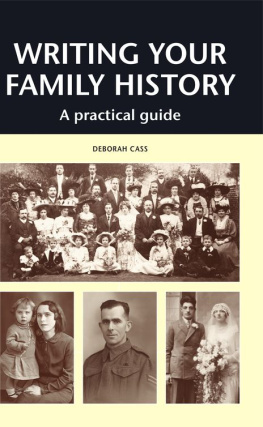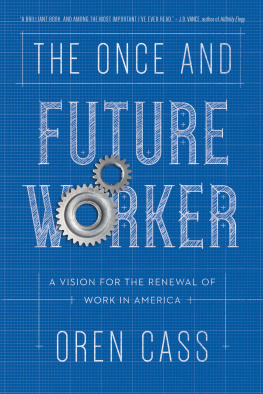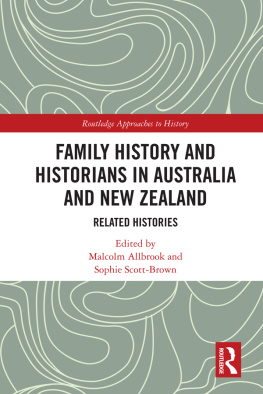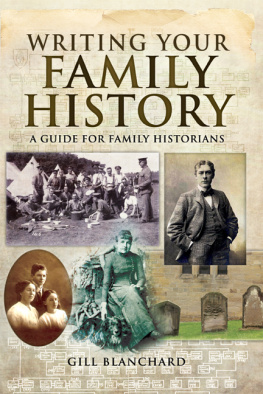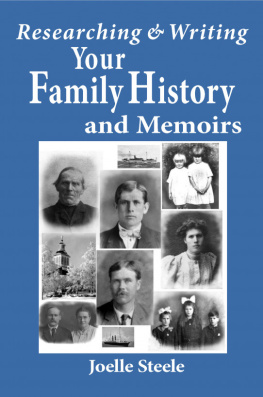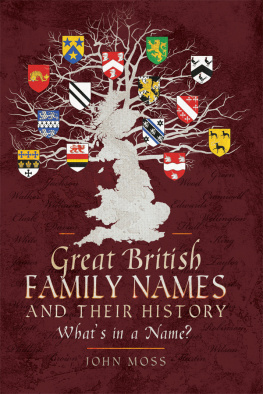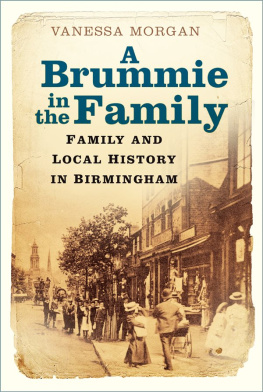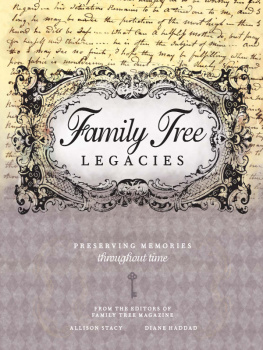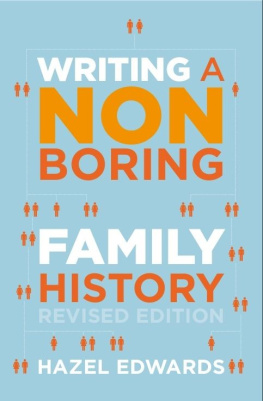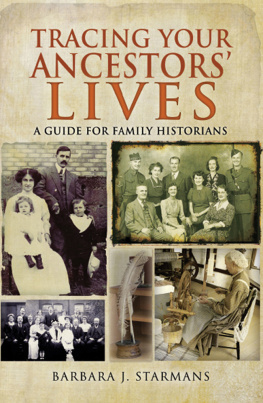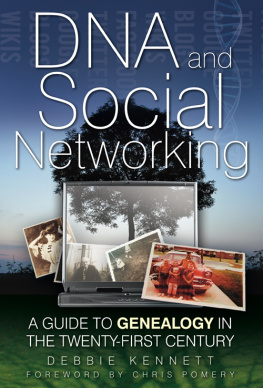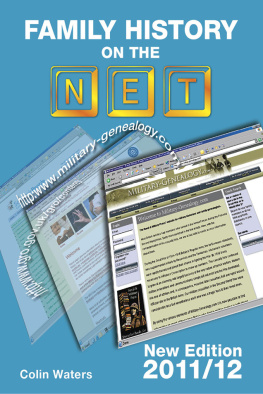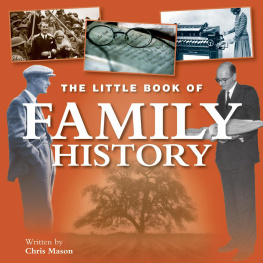First published in 2004 by The Crowood Press Ltd, Ramsbury, Marlborough, Wiltshire, SN8 2HR
www.crowood.com
This e-book edition first published in 2012
Deborah Cass 2004
All rights reserved. This e-book is copyright material and must not be copied, reproduced, transferred, distributed, leased, licensed or publicly performed or used in any way except as specifically permitted in writing by the publishers, as allowed under the terms and conditions under which it was purchased or as strictly permitted by applicable copyright law. Any unauthorised distribution or use of this text may be a direct infringement of the authors and publishers rights, and those responsible may be liable in law accordingly.
ISBN 978 1 84797 442 6
Dedication
To my grandmother, Lucy Ann Florence Ingamells Rogers (190878)
Acknowledgements
With grateful thanks to the following individuals for their help and support: Andrew Peach, Mike Corr, Neil Berrett, Bob Pryor, Daphne Oldfield, the Devon Record Office, the Revd Christopher Benson, the Wiltshire Family History Society, my family and friends, and William.
I f you are a family historian, you almost certainly will have amassed quite a large collection of family data in the form of family trees, photographs, birth, marriage and death certificates, letters, wills and other memorabilia. In fact, the longer you conduct your research, the more you will accumulate.
Preserving a treasured collection of family papers is a headache for many genealogists and family historians how can you both store and safely access all this material? Is your collection of family history neatly stored and indexed, perhaps using a combination of computer programs and files to store the information and documentation? Perhaps more importantly, if you do store your papers neatly and in an orderly manner, how do you give the contributors and other family members access to them, to all the fragile photographs and old letters you have collected from them over the years? Are you the family curator with sole access to your material? Are you using archive-quality paper? Is your storage adequate? Is your material safe? Are there any copies? Can anyone else gain access to your computer how will your geneology software stand the test of time?
Over the years, my concerns about my family history material grew to something bordering on neurosis. Not only was my treasured collection disintegrating with the passing of time, but what disturbed me equally was the thought of losing all this documentation through my imagined, worst-case scenarios of fire, theft or flood. Was I the only family historian who had ever tried to work out in the event of a fire how I could save both my dog and my treasured papers? They were, after all, irreplaceable, and if, like me, you have had to persuade relatives to part with their precious photographs and documents in the interests of future preservation, not only might the papers perish if personal disaster strikes, but can you really claim to keep them in any better conditions than their original owners?
If you are anything like me, far from being neatly stored and indexed, this material lives in boxes, plastic bags and old briefcases and in no particular order. In the past, as the self-appointed family historian, when I had a query from a family member or I wanted to find a piece of information, I had to wade through it all to find what I wanted. During this process, as I handled thin, fragile papers, some literally crumbling between my fingers, I was again confronted with my own mistreatment of all this material, especially when I was in a hurry to find something and when I was not as careful as I should have been.
A question perhaps even more pertinent to family historians is how will your collection papers and photographs be interpreted by future generations? Will they be able to follow your lines of research, know exactly who was who, put the right face to the right name, unravel the notes scribbled in your notebooks? Or would the many years spent researching your family history be construed by others as confusing worse still, as meaningless as the information lies immersed in computer programs, notebooks, albums of photographs, bags and boxes?
Until now you may have just updated family trees as babies were born and distributed the updated versions around your family as and when asked to do so. Of course, your family enjoy receiving the new record, but, apart from naming the next generation, it does nothing to impart any information or history of these ancestors. While the names will always mean something to those who remember certain characters, to future generations they will just be names.
T HE S OLUTION
If you share these concerns, there is a solution, a way to bring all your research together, preserve the material you have, give all your relatives access to their family history and present your familys story in a coherent way and that is to write your family history. In writing this history not only will you be able to set the record straight as to your familys origins, but you can also detail the lives of your ancestors and use history to give them the presence they deserve. You can include facts, figures, dates, photographs and photocopies, family trees and transcriptions of original documents to share and distribute among your relatives.
This will allow access to copies of original documents to all your family members, thereby rendering unnecessary any handling of the originals and, at the same time, duplicating the material you hold, so that, should the worst happen, at least the family story would not be lost. Even more importantly, you can put your familys story into its historical context, tie up loose ends and turn names into real people by telling their stories. You will be able to offer your relatives something more than just a family tree; you will be able to share the knowledge that you have gathered and present them with the story of their family.
The project of compiling the family story may give you a new focus for further research and a purpose to the gathering of your information. It may also have a positive effect on your relatives if you tell them what you are doing and yield further material for you to use.
W HY W RITE Y OUR F AMILY H ISTORY ?
Quite apart from the advantages of saving original material, telling the story of your ancestors lives as fully as possible, is as exciting as first discovering them from a parish register or a census return. You will also find that to document the lives of ordinary people can be as worthy and extraordinary as documenting the lives of the famous. This book will show you how to give your ancestors a presence in history, whether you have comprehensive details of their lives or only limited material to work from.
It was because of the response that my own family histories received (I wrote up all three lines of my family history) and my feeling that this was the point to my research that I felt compelled to encourage other family historians to do likewise.
T HE P URPOSE OF T HIS B OOK
This book assumes that you have begun researching your family history you may have been doing this for many years or for just a few months. Either way, you will most likely already have a number of guidebooks informing you of all the sources from which you can obtain your family history.
In the first chapters here you will find a list of primary sources. Although not exhaustive, these particular subjects or sources are highlighted to show their ability to provide you with material for your story. If you have not yet considered how newspaper archives and articles can help you or you have not yet delved too deeply into social or local history in your research, this is where you will be encouraged to do so. The information contained under each heading will prompt you to examine any documents that you may already hold and to explore subjects (if you have not done so already) that relate to your ancestors. I hope that these sources will ensure that you will make good use of local libraries to examine census returns, newspaper articles and local histories and your local record office for parish registers.

